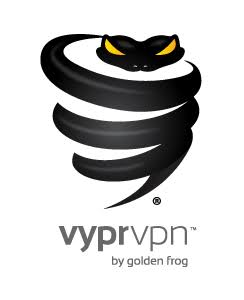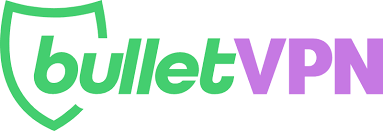Slick VPN Review (2024)
Being one of the most affordable propositions out there, SlickVPN claims to protect your privacy from anyone trying to snoop on, throttle, or buffer your traffic. The hyped-up intro made me cringe a little, so I was curious if the hyperbolic promise stacks up with reality.
What we like
- Custom software for Windows and Mac
- Up to 5 simultaneous connections
- Strong encryption and zero logs
- Hydra multi-hop for secure connections
- Supports P2P, HD video streaming
- Unlimited bandwidth
- Unblocks BBC iPlayer
- 30-day money-back guarantee
- Accepts Bitcoin
What we don't like
- Leaks DNS
- Inconsistent performance
- UI lacks usability
- Doesn’t unblock Netflix US
- May share your payment details with third parties
- US-based
Features
Slick VPN is a US-based VPN that’s been on the market since 2012. Even though it’s one of the lesser-known names, they boast fairly decent server coverage of 145 locations spanning 46 countries.
SlickVPN offers native apps for Windows and Mac while to run it on Android and iOS you need to configure the OpenVPN Connect app. I can’t say it’s a drawback because the OpenVPN app provides the best protection you can setup on mobile, and you only need to set things up once
The Windows client comes with a simple installation, but once you run it, you either love it or hate it. I wasn’t overly impressed with the GUI – the color scheme seems outdated while the Help link opens up a FAQs section in the browser, which isn’t the most intuitive of places. Their 24/7 support is ticket-based. You can only access the tickets from your browser dashboard, which is a bit of a drag, but the support team is fast and helpful.
Back in the desktop app, you can sort the servers by city, country, and the number of servers in a location, but there’s no way to see how loaded each location is from the get-go. Instead, the app has an embedded speed test tab, where you can sort the servers by name or distance from you, and run a ping, express or full speed test. The 2D map of servers feels outright redundant.
The preferences section lets you tweak some basic settings like startup options and logging. You can enable IP and DNS leak protection, customize protocols, and toggle balancing, which is advisable for stable streaming.
The Advanced tab lets you add OpenVPN parameters, but by the sheer looks of it (blank field for manual data input), you can tell this is for advanced users only.
I appreciate how the app gives you a quick look at the connection logs, but it’s not the most self-explanatory VPN client I’ve seen. It needs an overhaul and a little more consideration for the novice user.


SlickVPN allows you to have up to five simultaneous connections per account and install its apps on as many as you wish. The software comes with an embedded kill switch of sorts, which cuts your connection if an IP or DNS leaks are detected.
Scramble is a nifty feature that hides the OpenVPN headers. In layman’s terms, it lets you bypass the Deep Packet Inspection. Hydra is another neat proprietary technology, which uses multi-hop connections to make your traffic untraceable. You’ll need to go through User Guides to sort out how to enable it, however.
P2P torrenting is allowed. So is video streaming, and unblocking geo-restrictions, but you’ll need to weed out the fast servers first.
Pricing
The payment structure is straightforward: the monthly plan kicks in at $10; the three-month at $20; the bi-annual at $30; but the yearly plan is downright cheap at $48.
I appreciate how the 30-day money-back guarantee covers all plans and has no restrictions, making up for the lack of a free trial. Admittedly, these are the lower-end prices currently available on the market, and you can choose to pay anonymously in Bitcoin. So far so good.
Tests
The speeds dropped slightly during synthetic tests, but I was able to stream without overly aggravating lags
The overall performance beyond the speed tests was mixed, however. Some servers were speedy, others sluggish, and some downright unusable.

The leaks test, too, showed mixed results, with WebRTC and Ipv6 leak tests successful:

But a failed DNS leak test.
Also, when the client experiences an error, it tends to become unresponsive.

Unblocking Netflix US, Hulu, Steam US or BBC iPlayer is one of the most typical reasons to run a VPN. With that in mind, I tried my hand at accessing the two most popular services, and while I had a pretty smooth experience bypassing the BBC iPlayer’s geo-blocks and streaming in HD:

Netflix US turned out to be smarter than SlickVPN:

Privacy
On the flip side, SlickVPN is US-based, which might be a turnoff if you have serious privacy concerns. If they receive a DMCA notice while the offending connection is active (a highly unlikely scenario), they terminate the connection and notify the user. They also comply with valid court orders, while their ToS and Privacy Policy are a little flaky. For example, compare this statement here to the one on the front page that promises protection from “anyone”
They keep no logs, but they keep your billing information on servers in and outside the US and may share it with third parties, which doesn’t meet my requirements of a VPN you can trust.
Security
On the security front, they deploy the AES-256-CBC encryption, and the DNS leak protection is embedded. You can choose between the PPTP, IPSec, and OpenVPN, and opt for 128-bit encryption for a faster connection. They use SHA-1 for hash authentication, and 2048-bit RSA for handshaking, which is excellent.
Top that off with Hydra and Scramble, DNS and IP leak protection, and SlickVPN looks remarkably well. They also deserve kudos for a Warrant Canary page.
Final thoughts
SlickVPN is just about average. Some of their servers are fast, and they don’t throttle P2P, so you can use it for downloading and streaming. It has its drawbacks, too, like an occasionally sluggish client slated towards savvy users, DNS leaks, and hyped-up statements that don’t exactly fall in line with their ToS and Privacy Policies. Their support is responsive and the plans are inexpensive, however, so SlickVPN might be a good option for you if you’re on a tight budget.





